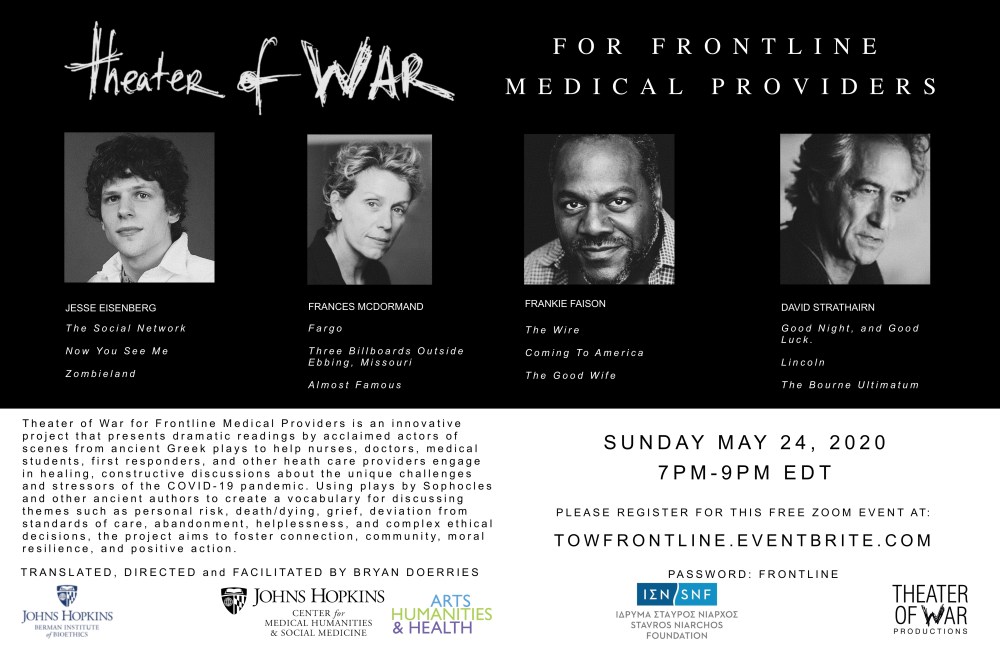May 24, 2020
7:00pm
The Johns Hopkins University Program in Arts, Humanities, & Health is excited to partner with the Berman Institute of Bioethics and Theater of War Productions to present Theater of War for Frontline Medical Providers via ZOOM on Sunday, May 24th at 7pm. This innovative project links dramatic readings by acclaimed actors of scenes from ancient Greek plays in conversation with front-line nurses, doctors, medical students, first responders, and other health care providers to produce healing, constructive discussions about the unique challenges and stressors of the COVID-19 pandemic.
Johns Hopkins’ Program in Arts, Humanities, & Health recognizes the healing and transformative power of the arts and humanistic inquiry and engages the Johns Hopkins medical campuses and surrounding communities with programming that fosters empowerment, equity, and community. This event leverages Theater of War Productions’ formidable record engaging hundreds of thousands of people around the world through meaningful performances with Johns Hopkins’ national and international leadership in responding to COVID-19. The May 24th event will also serve as a pilot for innovative and interactive programming that addresses the complex and often traumatic experience of medical providers dealing with the pandemic, in ways that can be expanded to benefit providers across the country and world in this time of crisis.
The two-hour event begins with a powerful reading of scenes from ancient Greek plays by actors Jesse Eisenberg (The Social Network, Zombieland), Frances McDormand (Fargo, Almost Famous), Frankie Faison (The Wire, The Good Wife), and David Strathairn (The Bourne Ultimatum, Lincoln), carefully curated to address themes and issues that medical providers are facing during the pandemic. Then, four panelists–members of the JH medical community–respond to what they heard in the preceding performance that resonated with their experiences caring for patients during the pandemic. Following the community panelists’ remarks, a skilled facilitator will then prompt the audience to join the discussion with a series of questions encouraging reflection and dialogue about the complex themes raised by the plays.
